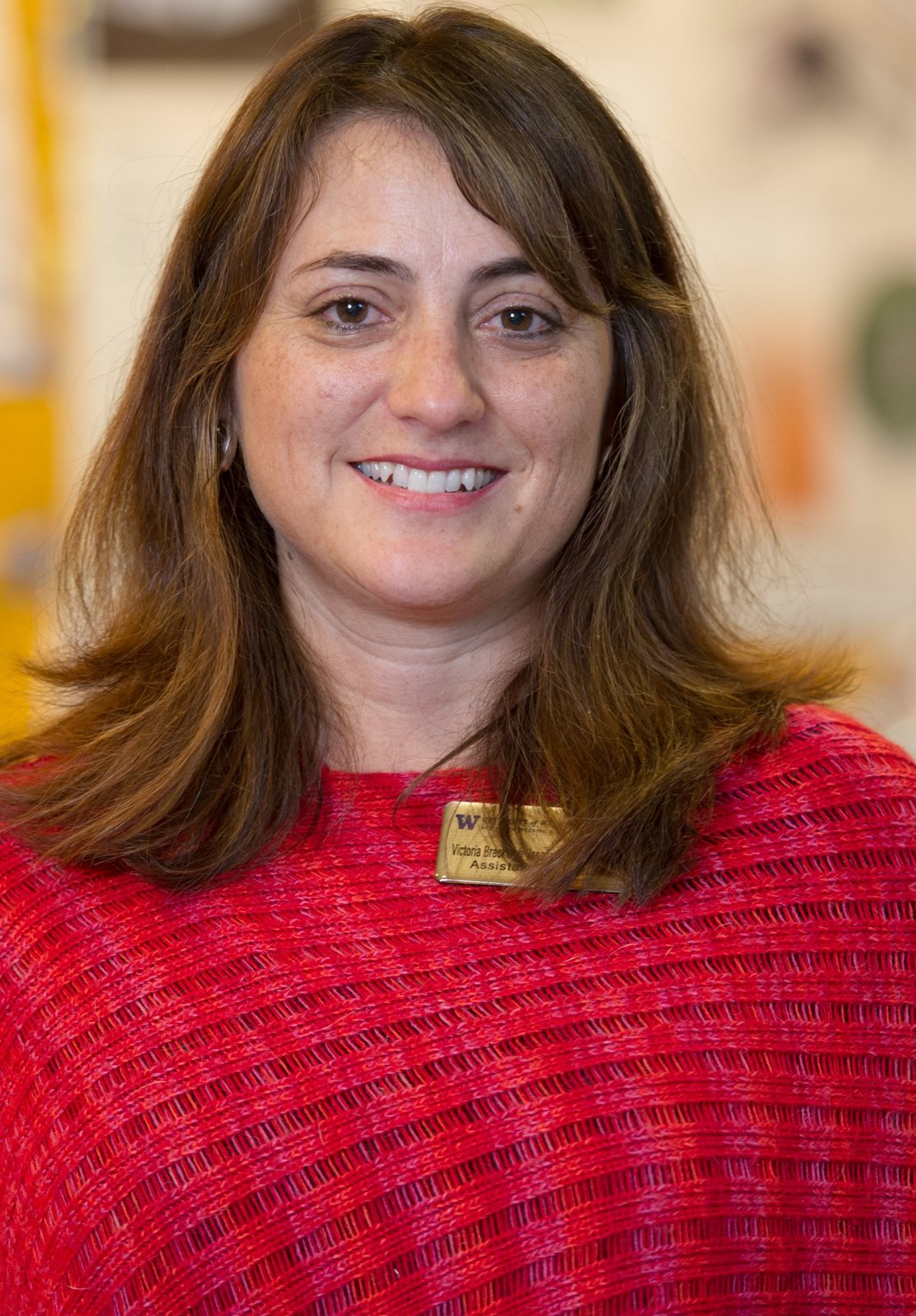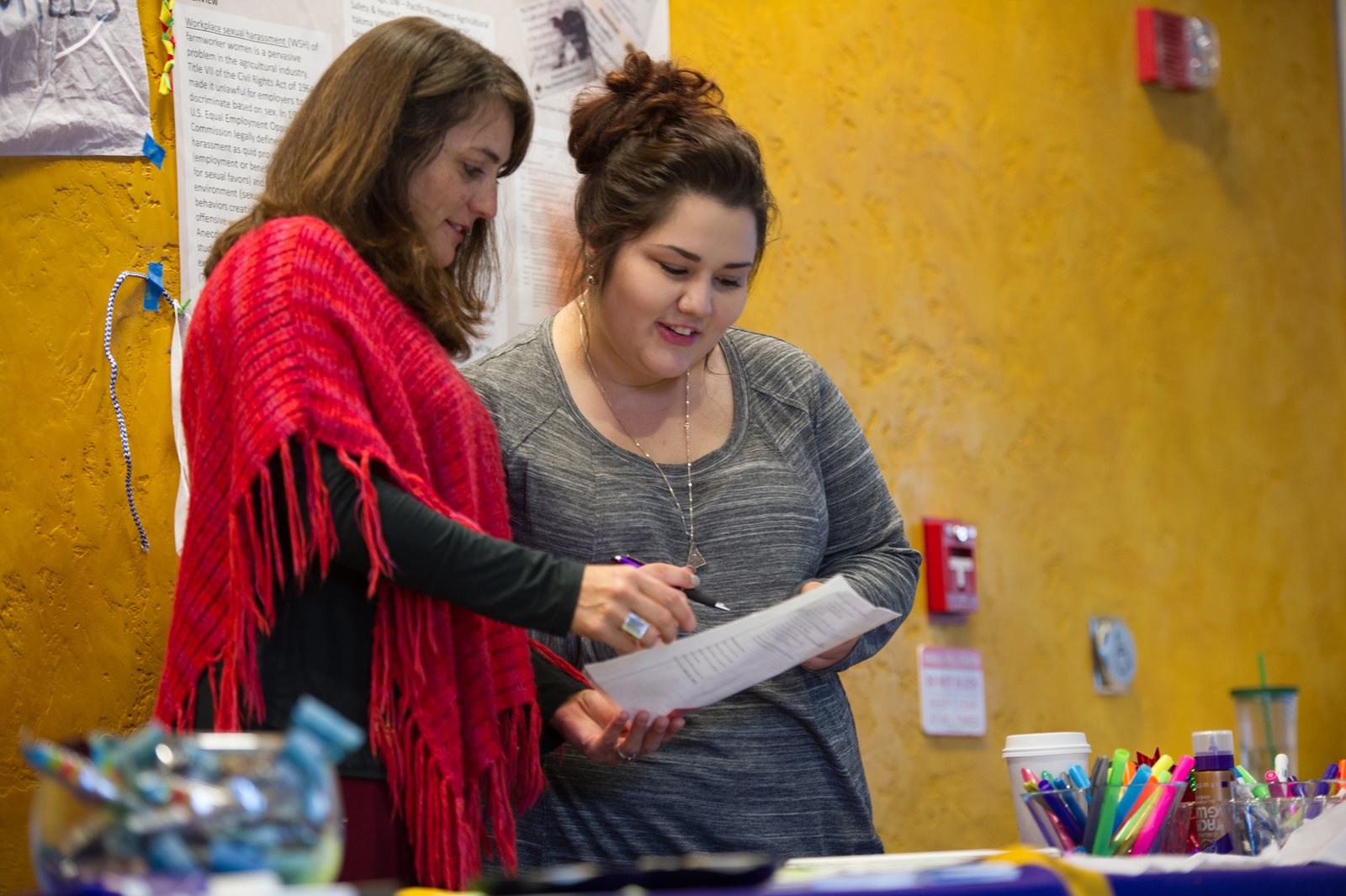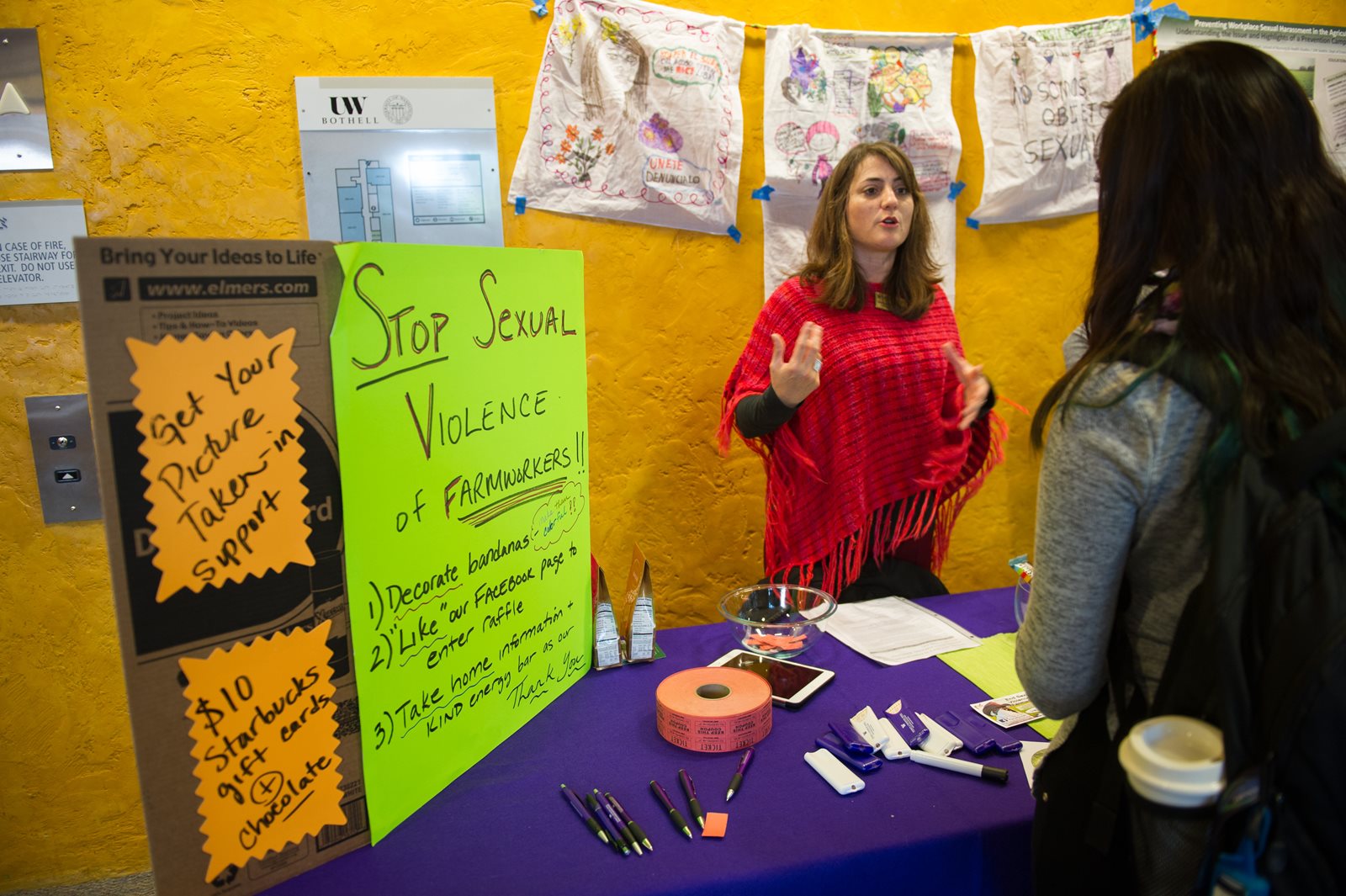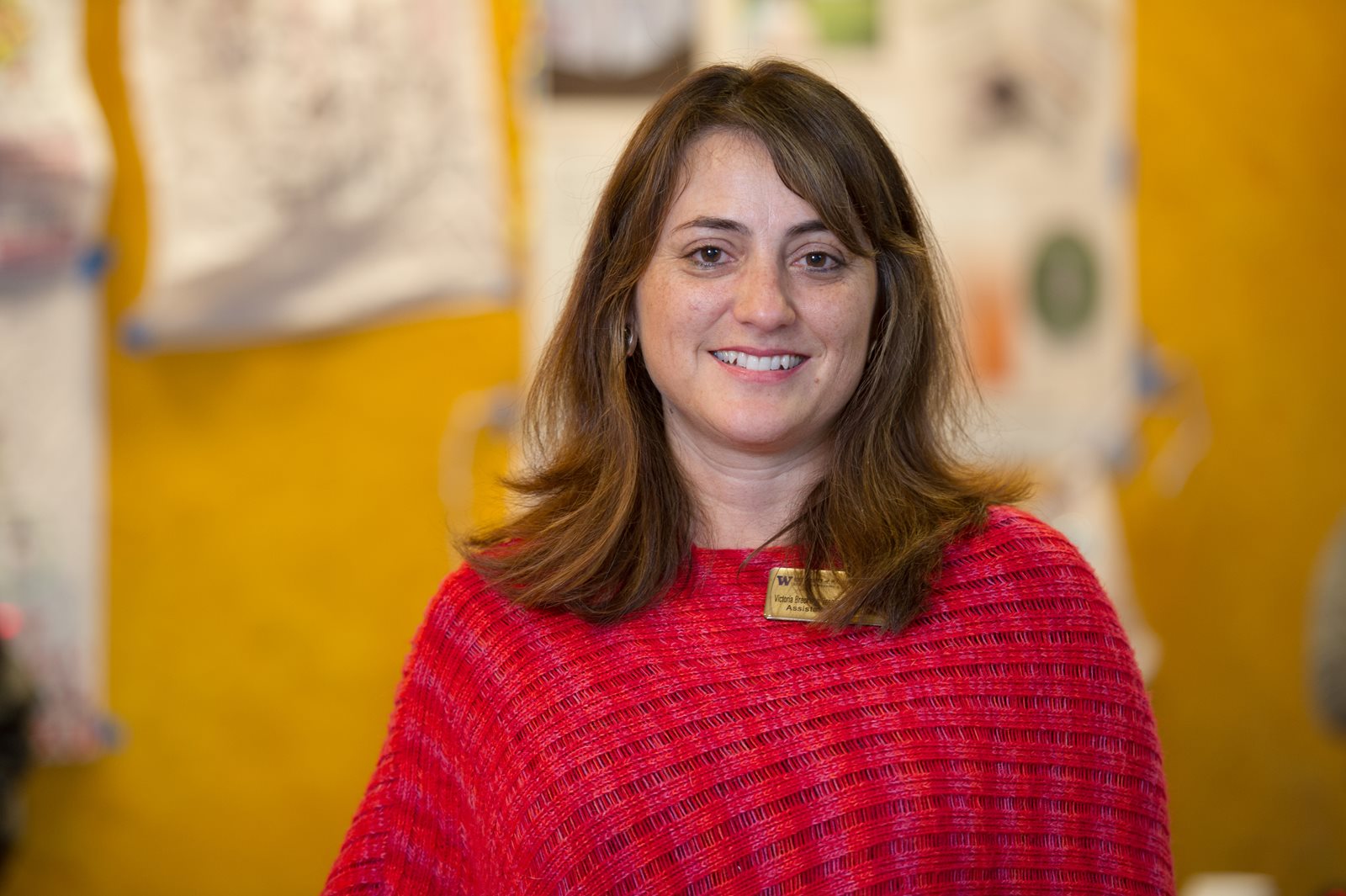
By Douglas Esser
During her working life, a woman has a 50 percent chance of being sexually harassed on the job, but for women farmworkers the figure is closer to 80 percent, says Victoria Breckwich Vasquez, assistant professor in the School of Nursing and Health Studies at University of Washington Bothell.
Women farmworkers are more vulnerable to the unwelcome advances of male supervisors and managers because the women may not speak English and they’re likely dependent on the farm for transportation and housing, she says.
And, they often can’t afford to walk away, says Breckwich Vasquez who also is director of community engagement and education for the Pacific Northwest Agricultural Safety and Health Center at the University of Washington’s School of Public Health.
Breckwich Vazquez and her students showed support for farmworkers April 26 with a bandana decorating project in the lobby of UW1. The bandana project was begun by the Southern Poverty Law Center to increase awareness of sexual violence in the agricultural industry.
As a researcher and advocate for farmworker health, Breckwich Vasquez realized that sexual harassment is an occupational health issue.
“Women were telling us about problems at their workplace that were preoccupying them more than pesticides or ergonomic issues,” she says.
That led to a campaign to educate women farmworkers and their employers that women have a right to be protected from harm, which includes verbal or physical conduct of a sexual nature.
When most people start work at an office or business they’re likely to go through an orientation that includes policies on preventing sexual harassment, says Breckwich Vasquez.
She’s now working with state policy makers and farm groups to have similar training for farmworkers. Before they start a job at a farm, workers could watch a video explaining rules and rights.
Many bosses agree with the approach because it’s in their own interests. In the past five years $254 million has been paid in the settlements on sexual harassments cases from farms in the United States, Breckwich Vasquez says.
“And those are only for cases that have seen the light of day,” since many go un-reported, she says.
Growers also are interested in being certified by the Equitable Food Initiative, which assures retailers that farms comply with EFI standards for working conditions, pesticide management and food safety.
The initiative has been catching on at farms in Oregon, California and Mexico and is being piloted by some farms in eastern Washington, she says.
Her students help Breckwich Vazquez with her community engaged research, which focuses on gathering voices and helping them structure the studies. She welcomes students who are from farmworker families.
Photo: Victoria Breckwich Vasquez with student assistant Alicia Hooper, right. (Photos by Marc Studer)
“They know exactly what I’m talking about,” she says. “It’s a way for them to put their education together with some research skills to address a community health problem in their midst.”






